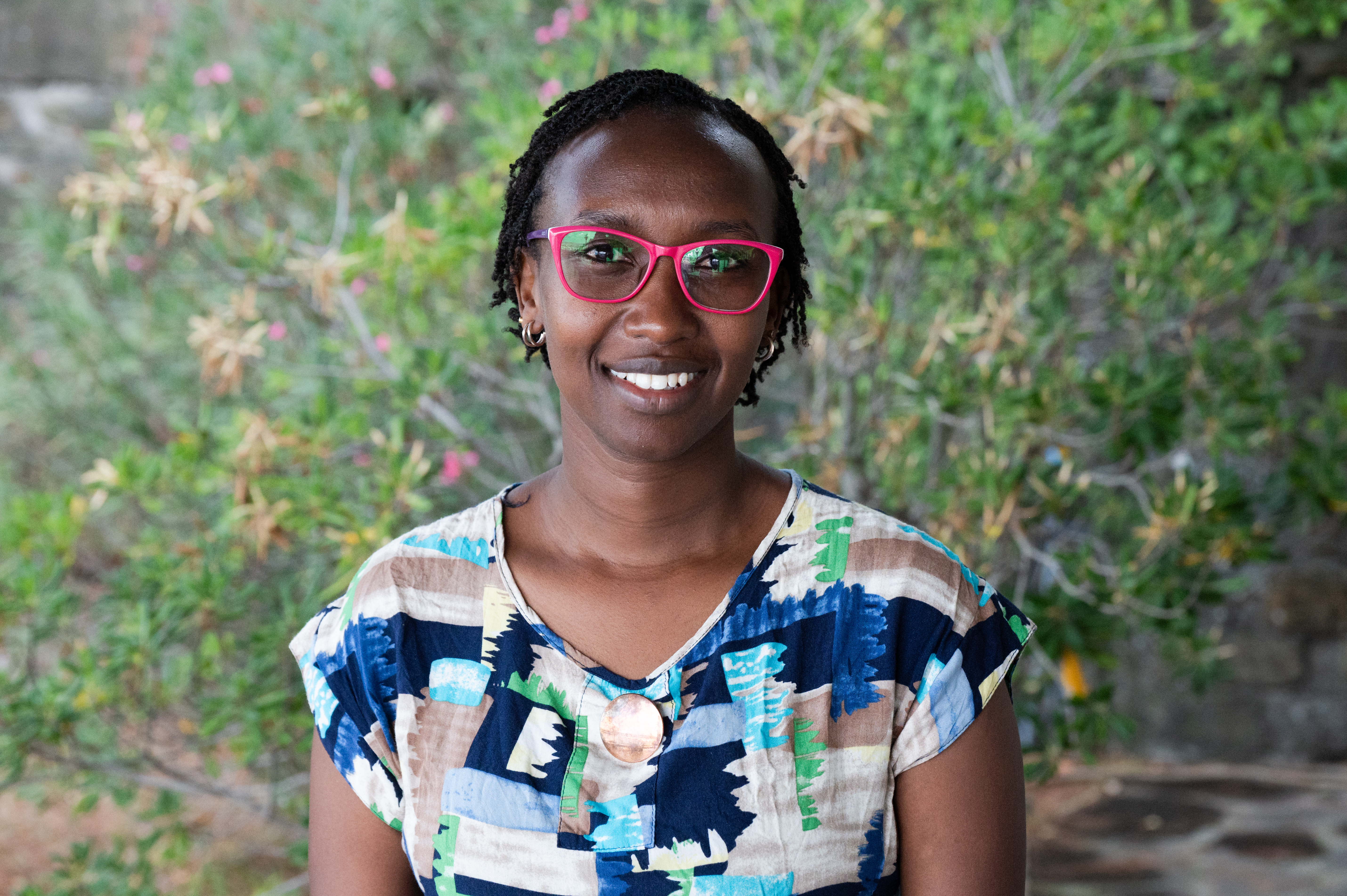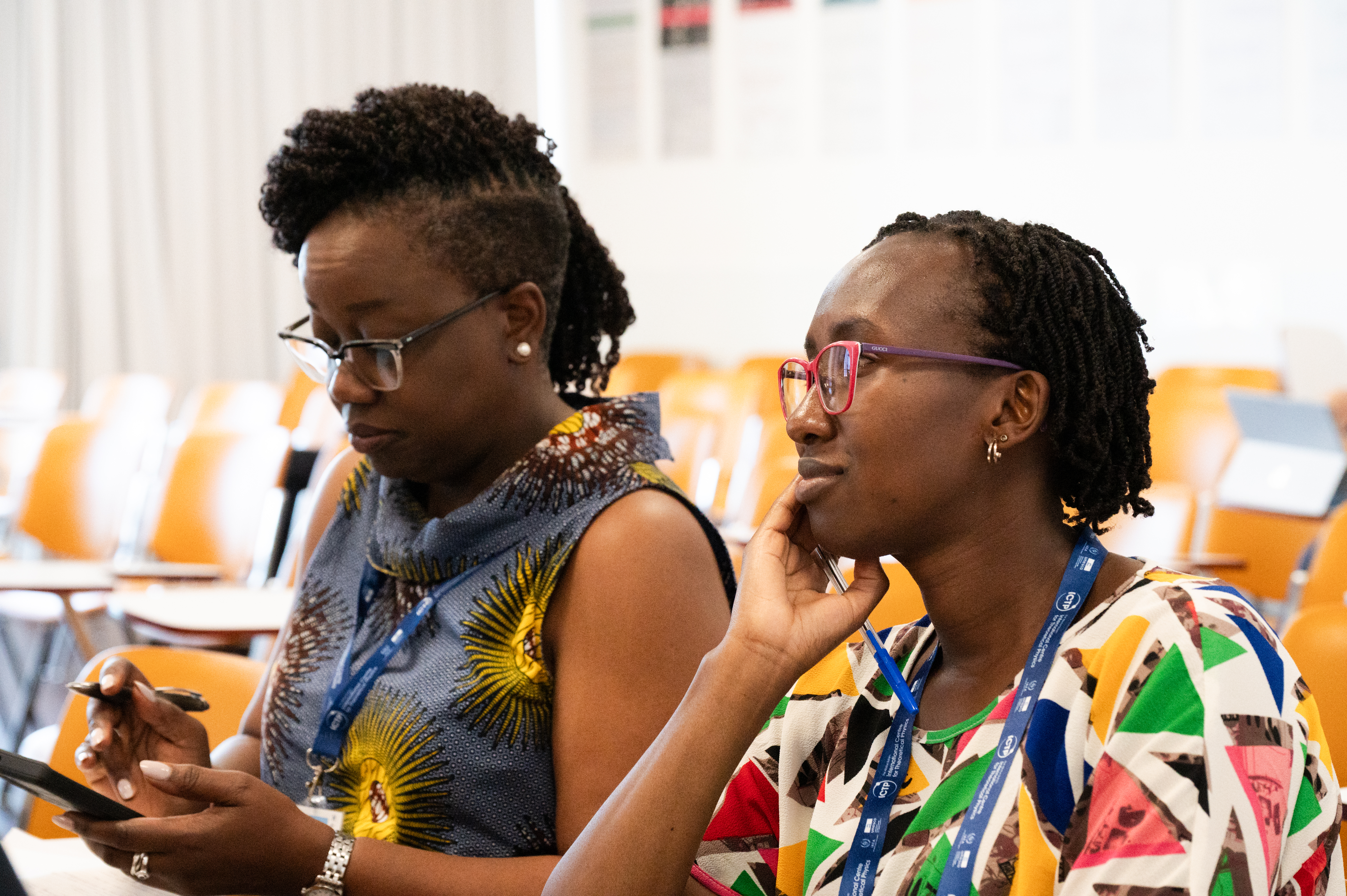In today’s complex world, solving global challenges often demands more than scientific expertise. Through policy engagement and international collaboration, science diplomacy plays a growing role.
Faith Kandie, a water quality researcher at Moi University in Kenya, explored these approaches during the 12th AAAS-TWAS Course on Science Diplomacy, held in Trieste, Italy, from 21 to 24 July 2025.
The course was launched in 2014 with key funding from the Swedish International Development Cooperation Agency (Sida), and has thus far trained 408 alumni who are now in a position to advise policymakers and spread knowledge about science diplomacy in the developing world.

Kandie is also a beneficiary of the Seed Grant for New African Principal Investigators (SG-NAPI) Programme, supported by the German Federal Ministry of Education and Research (BMFTR), and, in November 2024, she joined the TWAS Skill Building Workshop in Dakar, Senegal.
Deeply committed to environmental remediation, she is actively involved in research projects that address surface and wastewater pollution, organic micropollutants, and the impact of climate change. However, when she realized that she needed more effective tools beyond scientific expertise to engage with policymakers, she applied for the AAAS-TWAS course.
In the following interview, edited for clarity, Kandie explains what prompted her to learn the principles of science diplomacy and how she plans to apply these new skills once she returns to Kenya.
Q. What prompted you to pursue the AAAS-TWAS Course on Science Diplomacy?
A. By looking at my most recent data, I realized that Kenya’s waters are severely affected by alarming concentrations of pesticides, antibiotics, and other chemical contaminants. I felt a strong need to act and help restore the health of our water resources. I considered approaching the local authorities directly, but realized that scientists and policymakers communicate in a very different way, and that a different approach is needed if we want to bridge the gap between science and governance. But I did not have the right tools to act. This is what motivated me to apply.
Q. What outcomes do you expect from your participation in the workshop?
A. My early understanding was that science diplomacy is focused primarily on international collaborations and policy development. However, this perception soon changed. I realized that building trust and strong relationships is just as essential as evidence-based scientific knowledge. And the context in which science diplomacy takes place plays a crucial role too. This awareness was truly eye-opening.
Q. Like many other African countries, Kenya faces water challenges: can science diplomacy offer effective solutions?
A. The answer is yes. Water is a crucial resource, and both water availability and water pollution are a problem in Kenya. Last year we published a peer-reviewed scientific article that confirms for the first time the presence of 43 types of steroid hormones in Kenyan water. This poses a health risk to our health, as well as to aquatic organisms that we feed upon, and the ecosystems at large. This is something that policymakers should be aware of. Urgent actions are needed, and science diplomacy could offer solutions.
Q. How has the SG-NAPI grant impacted your career?
A. The SG-NAPI programme was a turning point in my career. I established a small lab at the faculty through this funding. My stay in Germany, at the Helmholtz Center for Environmental Research – UFZ, in Leipzig, was a meaningful experience: it gave me the opportunity to supervise two Master’s students in Kenya, both funded by the project. These students acquired new skills that they now pass on to others. We also published an article in a high-impact scientific journal, with my students as lead authors and myself as supervisor and then chaired and presented our research in an international conference. This opportunity was a launchpad for me. Later, I applied for additional funding, which was an essential step to advance in my scientific career.
Q. You attended the 2024 TWAS Skill Building Workshop, sharing your experience through a TWAS video. What was the reaction to the video in your scientific community?
A. The video went viral! I received enormous emails and LinkedIn messages, mostly from African students. They asked how I managed to join the SG-NAPI programme while seeking advice. Many of them mentioned I was an inspiring example of a mother striving in STEM and exceptional, as I succeeded in finding a German partner for the programme, which is a rare achievement. In a way, I feel like an ambassador for TWAS!
Q. At this course, along with your Kenyan partner Edith Anne Alusa, you have been assigned to the case study ‘Transboundary forest with poaching of rare species’, a theme related to biodiversity conservation. Does Kenya face biodiversity challenges that could benefit from science diplomacy?
A. Animals do not respect political borders, and Kenya has many natural landscapes where wild animals move freely from one country to another. Shared ecosystems require cooperation between neighbouring countries, and this suggests the need for complex, multilateral agreements to ensure effective protection. Decisions taken only at a national level would have limited impact. Coordinated actions supported by science diplomacy would be more effective in protecting the environment in a sustainable way.

Q. As a woman scientist, have you ever faced challenges or restrictions in your scientific career in Kenya?
A. In my career, I have faced several common stereotypes like assertive women scientists being labelled as authoritarian. My appearance doesn’t work in my favour: I have a small physique and look younger than my age. In meetings, scientists expect an older, grey-haired lady, not someone like me, and this influences how I’m perceived and professionally recognized.
Another challenge in my career has been balancing family life and work. I’m now married, with a child, but before starting my PhD, I deliberately chose to postpone motherhood. The SG-NAPI grant programme provides excellent support to mothers, through its scientist-after-child component, but I did not apply to that component as I was not pregnant at the time of receiving the grant.
I am truly grateful to my family for their overwhelming support throughout my academic journey and also during my numerous research stays abroad. Without their support, I would not be this far in my professional career.
Q. What impact may the AAAS-TWAS workshop have on scientific careers and global science diplomacy initiatives worldwide?
A. A valuable lesson I’ve learned from the science diplomacy workshop is the importance of building strong relationships based on mutual trust. Equally important is to find the right words to convey a scientific message, turning it into an easy-to-understand subject for policymakers. The course has also offered the participants access to international networks and established productive connections. I took one of the speakers, María Estelí Jarquín, as an inspiring model to emulate. She is from Costa Rica and has succeeded in launching science diplomacy in a country where, until recently, this discipline was not recognized and valued.
Q. What is your advice to young students who are in a scientific career?
A. Believe in yourself, act without fear, and forget the impostor syndrome. If you have something to offer, be intentional and go for it. Do not hesitate, go!
Cristina Serra
More photos of the 12th AAAS-TWAS Course on Science Diplomacy are available on our Flickr pages.

